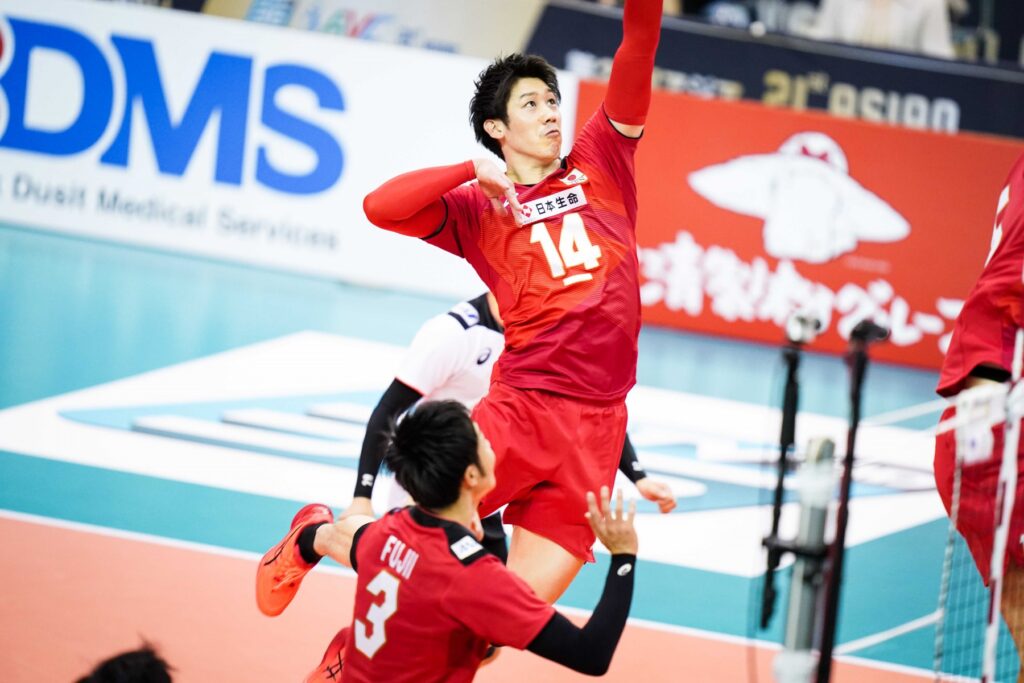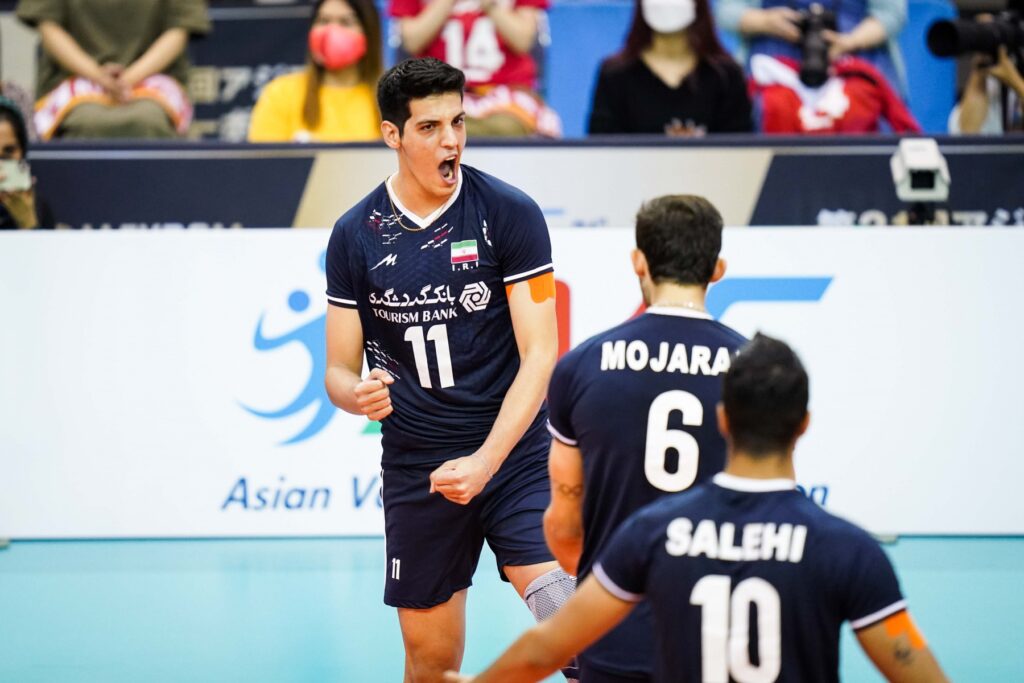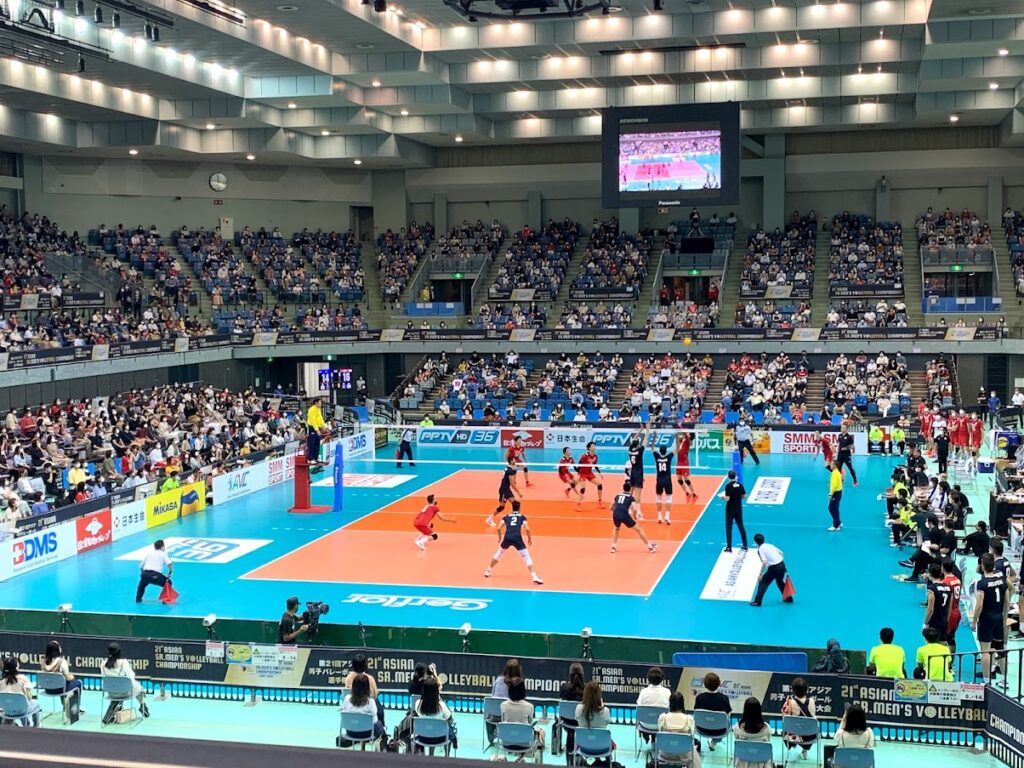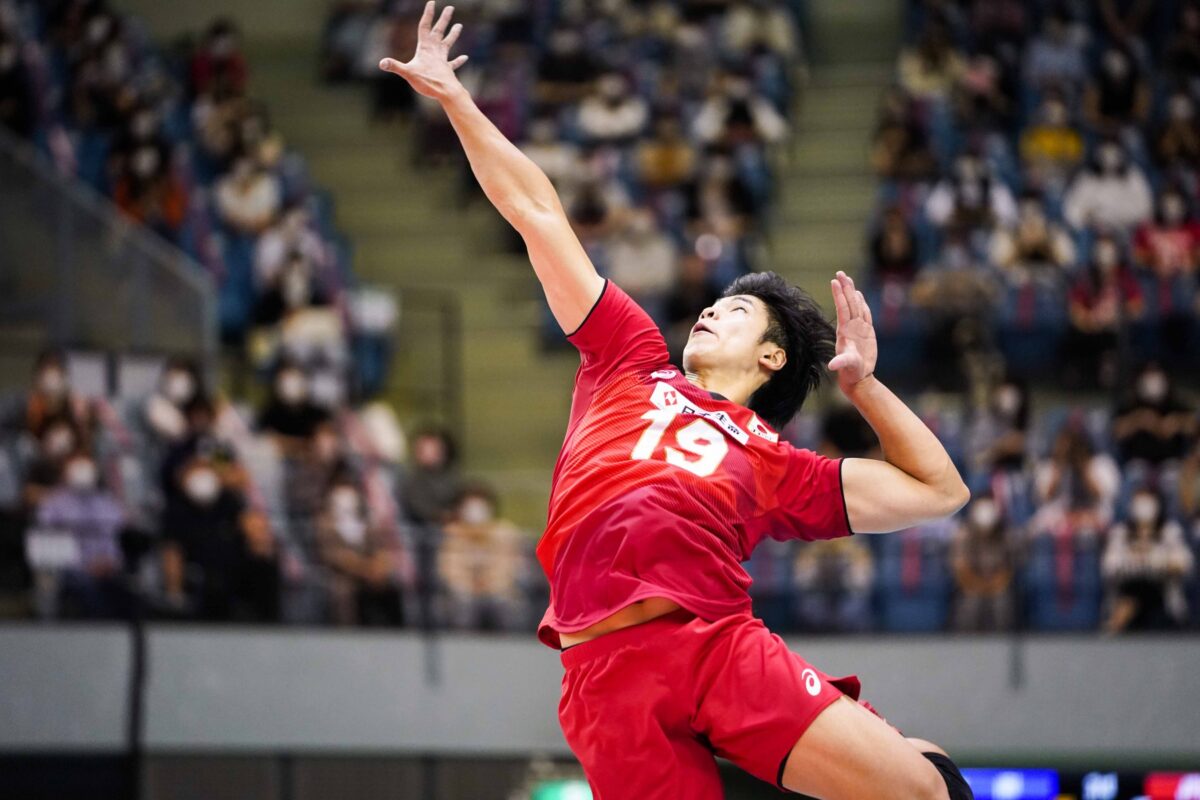Following the Euros, I'll also belatedly record my thoughts on the Asian Championships held in Chiba.
I paid to watch the Asian Championships, especially the Japan match (although it was much more expensive than the Euros), but I wasn't able to watch all the matches. However, I was able to watch the third place match and the final match on the last day, so this article will mainly focus on what I saw there. Please forgive me.
The Japanese men's team was in full swing at this tournament after making it to the top eight at the Tokyo Olympics. The image of them getting stronger was so prevalent that I had a feeling that they would naturally win the Asian Championships, but it turns out that even in Asia things weren't so easy. They got off to a great start, winning the opening match against Qatar without Ishikawa, but lost to China in the second group match, and in the final, they went all the way to a long deuce but lost in straight sets to Iran, finishing the tournament as runners-up.
I guess the biggest problem was the absence of Nishida and Sekita. Especially without Nishida, Ishikawa and Takahashi had to handle most of the high sets. Also, it seemed like there weren't enough big servers. Miyaura certainly did well in his senior national team debut. For a Japanese national team player up until now, it would have been enough to pass the test. However, the monster that is Nishida has raised the standards for Japanese opposites in one fell swoop, so while he may have been a Rookie of the Year player based on expectations, his performance was still not at the level of a Best Opposite. I got the impression that he was particularly blocked a lot. First of all, I'd like him to experience the V League.
In spite of all that, Ishikawa Yuki was amazing. With Nishida gone, the number of hits seemed to have increased significantly, but he still did a good job. What surprised me again this time was his amount of movement. He was moving all over the court. There were many scenes where he would jump on the right side of the block as a center blocker in an option block, then open up to the left and score, and the highlight was when he made a flying receive near the end line, then returned to the block and shut down Iran's ace Kazemi with one hit. It gave me goosebumps. As long as he's there, Japan will be fine, and I think the others around him will continue to improve. He's a truly great player.

Takahashi Ai, who has grown a lot since the Olympics, even exuded the aura of a veteran. His proud serve receive was once again extremely stable. He returned the powerful serves of Iran's Kazemi, who had been troubling all opponents up until the semi-finals, with ease, and his scoring ability in high sets also seemed more reliable. Although there is a big difference in height, I think he has grown a lot, just like Micheletto, who is the same age as him from Italy, and I think he still has a lot to grow, so I hope he continues to do his best. Ai has also announced that he will be taking on Italy, so I am looking forward to seeing him face Micheletto again for the first time since the Olympics soon.
I also want the middle blockers to do their best!! Yamauchi, who entered the finals as a substitute, was active with his spikes and serves, but in the match we lost, we couldn't help but feel the difference in the middle blockers. We didn't get to see much of the Fujii-Lee combo in the finals either... Good luck to Japan's middle blockers!!
Japan was without Nishida and Sekita since the Olympics, but Iran, which won the championship, was without three players: Marouf, Mousavi, and Ghafour. This tournament also showed that Iran is still ahead in terms of the depth of its players. Rather, Karimi, who replaced Marouf, was a tall setter at 204 cm, and Kazemi, who replaced Ghafour, was 205 cm and performed well enough to win the MVP, so the team's strength was probably stronger than the previous team. The toss was even, and everyone was able to score on the sides and in the middle, the serves were strong, and the blocks were persistent. The new captain, Ebadipoor, also looked good (laughs). Iran is strong after all. With more and more talents waiting to be added below them, it will be a really tough battle for Japan to participate in the Paris Olympics.

As for China, I was surprised because I had the impression that they were winning with ease, even though they had lost some sets in the friendly match just before this year's VNL. Since they were mainly made up of young players, they must have steadily improved their team strength over the summer. In particular, their blocks were as high and responsive as those of Western teams. In the third-place deciding match, they stopped Taiwan's spikes one after another. Their serves were also powerful. In particular, the sound of the serve from opposite player Jian was amazing, and Yu, the 183cm outside player, also delivered a sharp serve. China has also secured a ticket to the World Championships due to the world rankings, so it will be interesting to see how far they can go against the Western teams.
Taiwan, which unfortunately came in 4th place, also showed some interesting volleyball. In particular, the combination of No. 11 opposite Wu and setter Tai was very fast and interesting to watch. Wu was a southpaw and No. 11, so I wondered if he was a Nishida fan (come to think of it, Iran's Kazemi is also No. 11 southpaw (lol)), but his play reminded me of Andre from Brazil's golden age. The combination of setter Ricardo and opposite Andre at that time was really fast, and they were sending out tosses without caring about high sets, and watching the Taiwanese team reminded me of that video. Well, their accuracy is much lower than that of Brazil at the time, so I thought it was a shame that their tosses didn't extend enough and got caught in the blocks, but they were players that made me want to see them again. Taiwan's middle was also tougher than Japan's. They weren't able to fully utilize their blocks or quicks. In particular, there were a lot of guess blocks, and there were many scenes where there was only one side blocker. Good luck, Taiwan.
Overall, compared to the Euros, we still couldn't watch the game in the same way as we did before COVID, but it was still really fun to watch a live game after such a long time. The Chiba Port Arena was very easy to see. Next time, I'd like to take off my mask and watch the game out loud. I hope that such a daily life will return as soon as possible.

Anyway, this is the end of the national team season for this year. I'm curious about the new coach, but for now, thank you for your hard work. Next year is the World Championships in Russia. I'd like to see them make it to the top eight for the first time since the 2006 Japan tournament.
Photo: AVC, photographed by author
